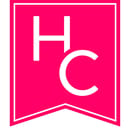Elisabeth Laett is the president and executive director of Xaphan Group, an international team of hands-on angel investors who invest in start-up and early-stage businesses. As a Concordia alumna with an expansive background in business and technology—an industry that is often male-dominated—Elisabeth was able to share with me some advice and experience on women in leadership.
How did you get to where you are today? Who or what helped you along the way?
First, I was fortunate…and then I worked hard. I was recruited into a great technology company which is now HP (Hewlett-Packard) right out of university. Working in Fortune 50 companies gave me tremendous exposure to many different facets of business and applying technology to many different industries. I was always looking for a challenge and over the last 25 plus years I moved between [entrepreneurial] and corporate worlds and sometimes I was fortunate to have a shared experience where one gets to bring new technology and solutions to life under a corporate umbrella. For me, the importance is your willingness to be a little uncomfortable –a paycheck can never be the most important thing.
It’s comfortable to work a “safe” job. It’s comfortable to work for someone else. And for many, comfortable can also mean being happy, but extraordinary things happen when we put ourselves in uncomfortable situations. Starting your own business is a risk that can be uncomfortable, but a little risk is what it takes to create your own version of success and push yourself to achieve superior results.
What did you study at Concordia University?
I studied business with a focus on computer science.
How did Concordia University encourage you to get to where you are today?
I attended private high school and CEGEP. It was competitive and focused with little time for extracurricular activities. Concordia provided a stimulating environment to expand my horizons. Academics were important but I had the cycles to get a lot more involved. I was elected to student council and I was a member of the senate; I loved getting a better understanding of the governance aspect of the university. It was a well-rounded education, [with] academics as well as great curricular learning opportunities.
What do you think is the most significant barrier to female leadership?
Allowing yourself to think there is a barrier.
How can women overcome this challenge?
you are constantly working towards viable solutions to issues you are experiencing, you will find that the barriers will start to come down and you can work together to find a way around them.
How do you achieve a work-life balance?
You don’t! And you must stop complaining about [it]. It is a utopic sentiment. Finding “grace” as I call it is about accepting the difficult compromises, mourning the losses quickly and moving on – just be clear about what is important in the big picture- a picture that should be re-evaluated constantly to make sure that you are not holding on to a set of expectations that are no longer valid.
What woman inspires you the most and why?
I might have said Hillary Clinton or Angela Merkel [as they] have circulated on my inspirational list on a regular basis, but surprisingly these days I would give the honour to my mother. At the ripe age of 87 she still insists on learning something new every day. I love that she calls me at six in the morning to talk to me about the inspiring TED talk she watched on YouTube last night. Her iPad is her constant companion and when asked if she wanted a keyboard to go with it, as she writes a lot, she answered, “why would I ever need that again?” She embraces change! She continues to regularly attend McGill’s lifelong long-term program. She walks her dogs on the mountain everyday. And these days she is focused on training her Google Home device.
What advice do you have for aspiring women entrepreneurs and leaders?
I am never short of advice, but I think the best advice you can give are those that come out of hard learned lessons. Barbara Bush gave a commencement address to Wellesley graduates a good while back and her closing line has always resonated with me:
“Cherish your human connections: your relationships with family and friends. For several years, you’ve had impressed upon you the importance to your career of dedication and hard work, and, of course, that’s true. But as important as your obligations as a doctor, lawyer or business leader will be, you are a human being first and those human connections – with spouses, with children, with friends – are the most important investments you will ever make. At the end of your life, you will never regret not having passed one more test, not winning one more verdict or not closing one more deal. You will regret time not spent with a husband, a child, a friend, or a parent.”
What impressed me in these words was the importance to focus on what matters most. To me the secret is the ability to be protective of your time – it takes a lot of discipline and I need to constantly work at it all the time. Many times it is just too easy to make it one of the first things that we are willing to compromise on.

